|
According to recent polls approximately fifty-five percent of U.S. adults are dissatisfied with both major party candidates, President Joe Biden and former President Donald Trump. Count me among this group. In previous blogs I have written about the need for another major political party in the U.S. to weaken the stranglehold on our politics by the Democrat and Republican duopoly. But now is not the time. In the midst of a razor thin presidential race, a third-party candidate could easily disrupt the race in ways that may not be in the best interests of the county. As a point of clarification, when I refer to a third-party candidate, I am also referring to independent candidates who are not affiliated with a political party. Here is a list of the major third-party candidates who have obtained ballot access in at least some of the 50 states: Candidate # of States with Ballot Access Robert F. Kennedy Jr.(Independent) 10 (14 pending) Chase Oliver(Libertarian) 33 ( 1 pending) Jill Stein(Green) 23 ( 1 pending) Cornell West(Independent) 6 ( 2 pending) Obstacles Confronting Third-Party Candidates: Even with all the discontent with the major political parties, third-party candidates have had little success in garnering much national support. Americans have never elected a third-party candidate for president. It takes a tremendous amount of money and the backing of a large political team to run an effective national campaign. In this country most of the big money donors and political talent are controlled by the Democrats and Republicans. Elections are administered by the states, governed by laws written by politicians who are members of one of the two major parties. Just getting on the ballot in each of the fifty states is an arduous and expensive task. The major political parties handle this for their candidates, but independent candidates are on their own. There are some variations between states, but there are basically three ways to get on a state’s ballot.
Without access to the ballot in all fifty states it is nearly impossible to win the 270 electoral votes needed to win the presidency. All states, except Maine and Nebraska, award all their electoral votes to the candidate that received the most overall votes in their state. Maine and Nebraska award their electoral votes by Congressional district. In 1992 Ross Perot ran the most successful third-party campaign for president since Teddy Roosevelt’s in 1912. Perot won 19% of the popular vote running against George H.W. Bush and Bill Clinton. But even the most successful independent run for president in the past 100 years didn’t earn Perot a single electoral vote. Impact of Third-Party Candidates in Recent Years: Ross Perot in 1992: Bill Clinton defeated George H.W. Bush in the 1992 presidential race with 43% of the vote. Running as an independent, Ross Perot pulled a significant number of Republican and independent votes from Bush, which likely cost him the election. Ralph Nader in 2000: In the closely contested 2000 presidential election between Al Gore and George W. Bush, it came down to the state of Florida to determine the winner. Ralph Nadar was the candidate for the left leaning Green Party and won 97,488 of the Florida votes. Bush beat Gore in Florida by only 573 votes and secured the presidency. Did Ralph Nadar spoil the election for Al Gore? It’s hard to argue otherwise. Jill Stein in 2016: In the 2016 presidential race Hillary Clinton received 2.9 million more popular votes than Donald Trump, yet Trump received 304 electoral votes to Clinton’s 227 and won the election. With approximately 7 million votes going to third-party, independent and write-in candidates, either Clinton or Trump could have benefitted if they received even a small percentage of these votes. Clinton lost Michigan, Pennsylvania, and Wisconsin by a combined total of less than 80,000 votes, giving all electoral votes from these states to Trump. If all of Jill Stein’s votes went to Clinton in these states she would have won the election. Jill Stein was the candidate for the left leaning Green Party, so this scenario is plausible. The Libertarian candidate Gary Johnson received three times as many votes as Jill Stein and it is impossible to know how many of his votes would have gone to either Trump or Clinton if he weren’t in the race. 2020: In the 2020 presidential election only 2% of the votes went to a third-party or independent candidate compared to 6% in 2016. This is probably no accident. The Democrat Party was convinced that Hilary Clinton lost the election in 2016 due to votes that went to third-party candidates, particularly Jill Stein. Operatives for the Democrats went to work and were successful in limiting the number of states where the Green Party candidate appeared on the ballot for the 2020 election. In that election the Green Party candidate appeared on the ballot in only 22 states compared to 48 in 2016. The 2020 election was extremely close in several key battleground states. If third-party and independent candidates received votes in numbers closer to historical norms, the election could have turned out very different. Joe Biden won Michigan, Pennsylvania and Nevada by less than 3% of the votes. The margin of victory for Joe Biden in Wisconsin, Arizona and Georgia was less than 1%. These are sobering facts for the Democrats in the runup to the 2024 election. Looking Ahead to 2024 Election: The dynamics of the 2024 election are pointing to an election where independent and third-party candidates could play a significant role in the outcome. Current national polls put the race at a statistical dead heat, with Trump and Biden both polling at around 41% among registered voters. Robert F. Kennedy Jr. is running a distant third at about 10%, with the remaining voters either undecided or throwing their support behind Jill Stein, Chase Oliver, or Cornell West. It is impossible to know precisely how any one of these third-party candidates will impact the election, but with the overall discontent with the major party candidates, it is something that concerns both campaigns. Of concern to the Biden campaign are left leaning candidates Jill Stein and Cornell West. Chase Oliver is the libertarian candidate but is left leaning and could also pull some of Biden’s votes. Robert F. Kennedy Jr. is the wildcard in the race and has the potential to be the biggest disrupter. Kennedy has the advantage of his famous name, which gives him instant recognition, and he will be on most of the ballots in the battleground states. He is a former Democrat, but well known for his anti-vax and conspiratorial views. This might explain why he is pulling support away from both Biden and Trump. I think that the Biden campaign has the most to fear from Kennedy due to his strong support among Latinos and younger voters. The Biden and Trump campaigns are both nervous that Kennedy could siphon away votes. Trump is now painting Kennedy as a “radical left lunatic” and a “liberal parading in conservative clothing". Biden has enlisted the help of the Kennedy clan who have thrown their support behind him and denounced their wayward relative. If history is any guide, most voters will coalesce around one of the two major candidates as the election nears. That will still leave several million votes going to someone other than Trump or Biden. The election will be decided in the battleground states which proved to be decisive for Biden in the last election, but by very narrow margins. An independent or third-party candidate has no chance of winning 270 electoral votes in the 2024 presidential election, so the next president of the United States will be either Joe Biden or Donald Trump. If you prefer either of these candidates, you should make your vote count and vote for them. Now is not the time to issue a protest by voting for a third-party, independent, or write in candidate, or by not voting at all. This election is too important, and the outcome will shape the direction of our democracy for years to come. If you enjoy reading this type of commentary please subscribe to my blog and tell a friend. You will receive an email notification when new blogs are posted. The email will come from the site’s email: [email protected].
Thanks, Armchair American
0 Comments
|
AuthorThe Armchair American. Archives
November 2024
Categories
All
|
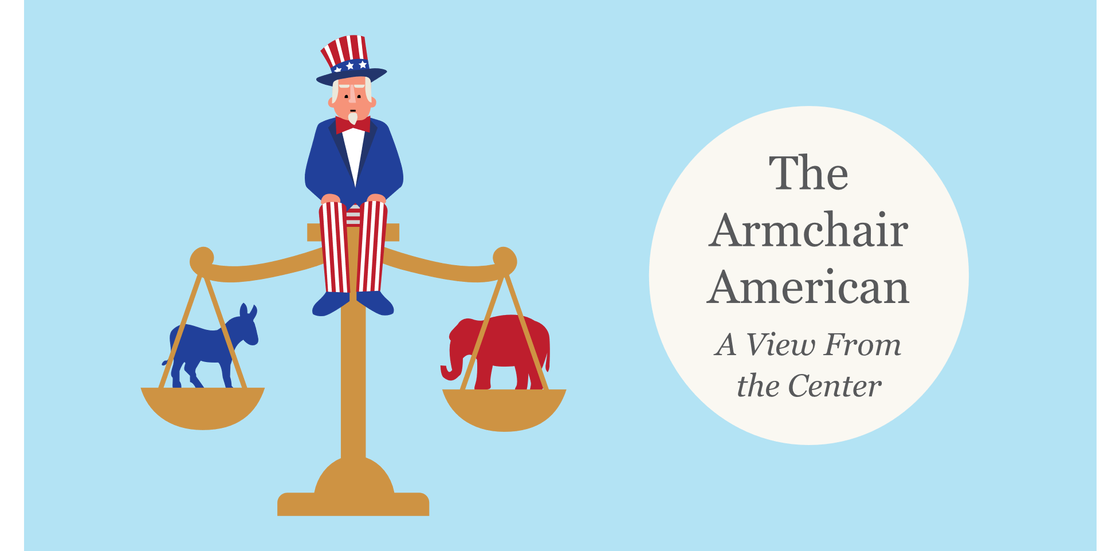
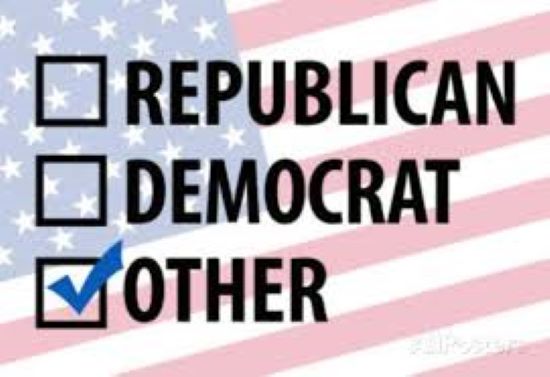
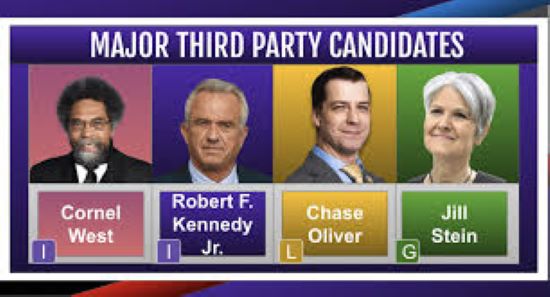





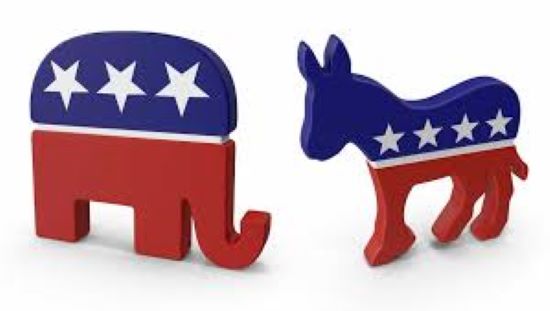
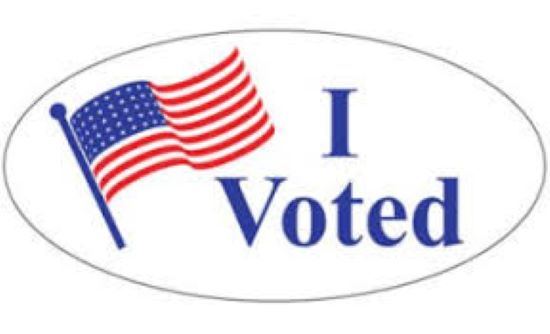

 RSS Feed
RSS Feed